Major project
Improving the Ageing Generation's Health and Quality of Treatment, through Improved… [Read more]
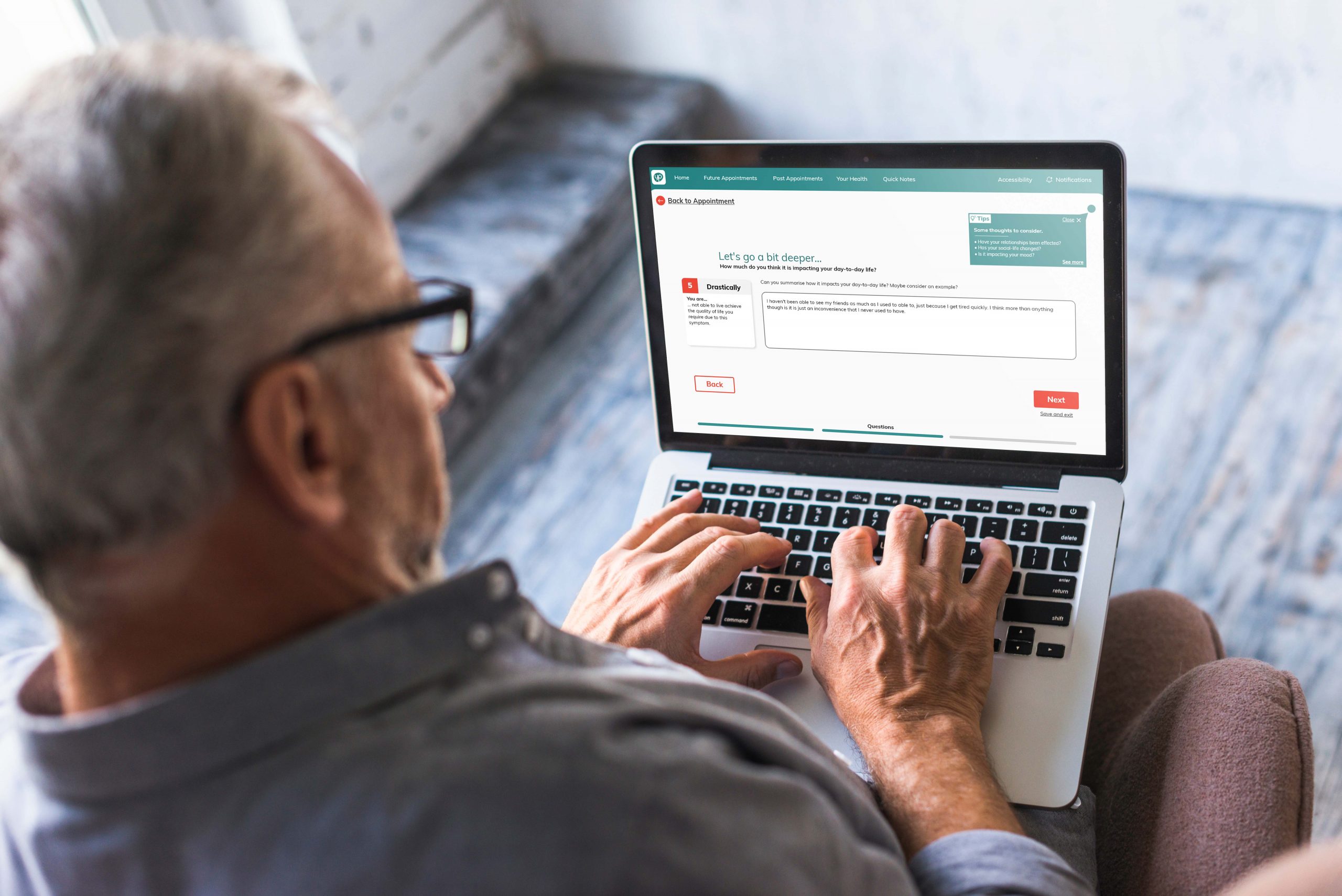
Your Portal. Enabling elderly independence throughout the entire appointment process.
Your Portal is a health service aimed at dependent-independent, ageing adults, who want to regain the confidence and ability to be independent in control of their health, having become reliant on family during appointments due to diminishing memory compromising their ability to articulate symptoms and retain information. It utilises a combination of GP frameworks and AI guidance to support the user through the appointment process; enabling the independence they desire, whilst simultaneously improving the healthcare they receive.

The Challenge
With age, comes the increased potential for health-related issues and the subsequent need for self-management and effective health literacy. However, research has indicated how the elderly generation is the least effective at achieving this. This is further compromised by their aversion to adopting the health technology that is proven to assist with this, creating a health divide within society. This not only compromises their ability to manage their own health, but also increases visits to already stretched GP practices, and lowers the nation's population health.
The aim of this project was to better understand the ageing generation's barriers, motives, and attitudes towards self-management, in order to design a meaningful solution that encourages them to engage with self-management and subsequently improve the efficacy of the treatment available to them.
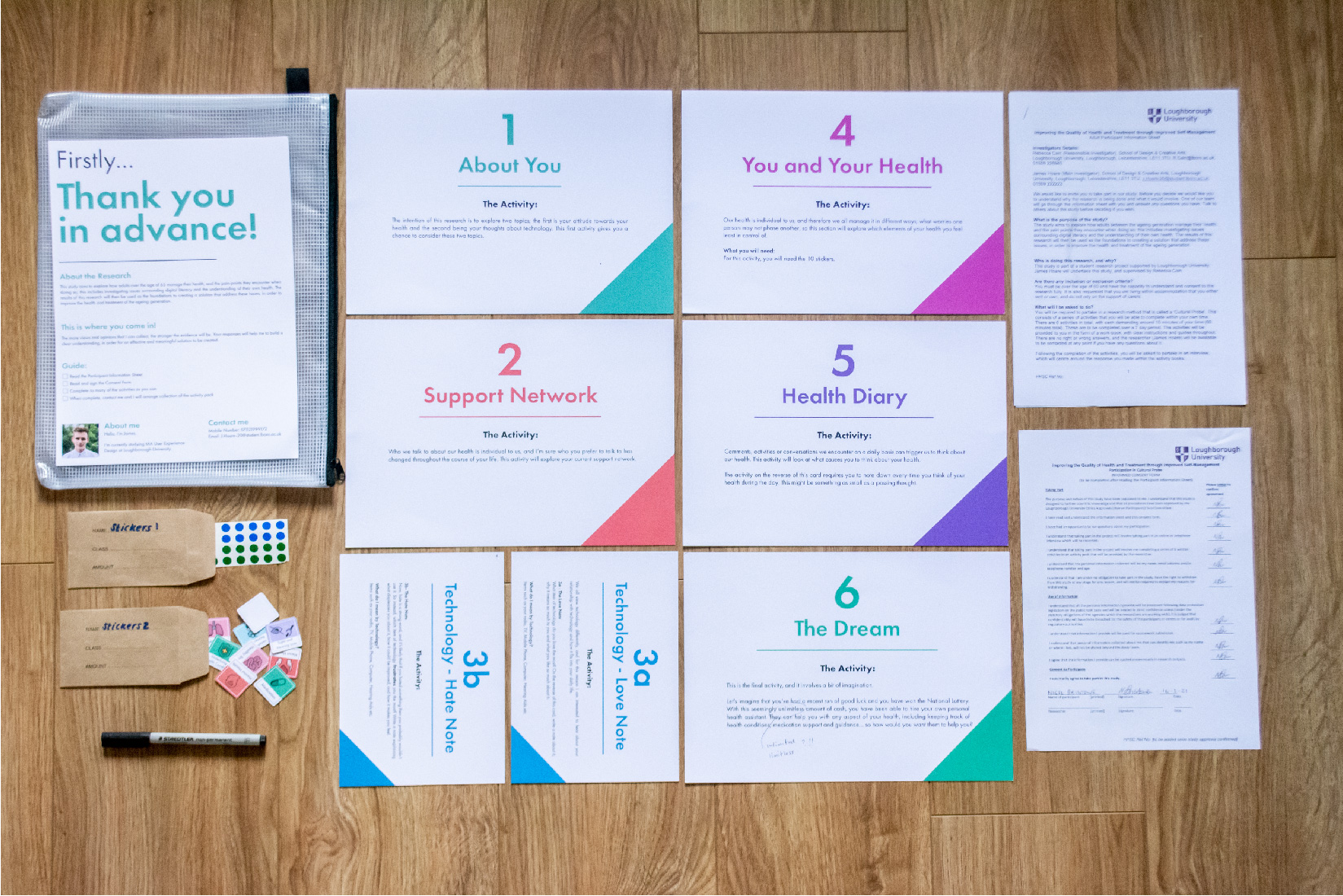
User Research
In-depth contextual research was conducted to gain deep, qualitative insights into the attitudes that the ageing generation has towards self-management and the existing behaviours that surround their attempts at managing their health. The research methods were adapted to adhere to the constraints caused by the COVID-19 pandemic, resulting in innovative approaches to be taken;
• Cultural Probe activity packs were designed and distributed to explore the user's attitudes towards both their health and health technology. The creative activities provoked a deeper level of thinking, allowing for more insightful responses.
• Key Informant Interviews were conducted with medical professionals to understand the problem space from their perspective; un-earthing both logistical and emotional challenges.
• Storytelling with EmoTrack® was conducted to uncover the emotional pain points that surround existing GP appointments.
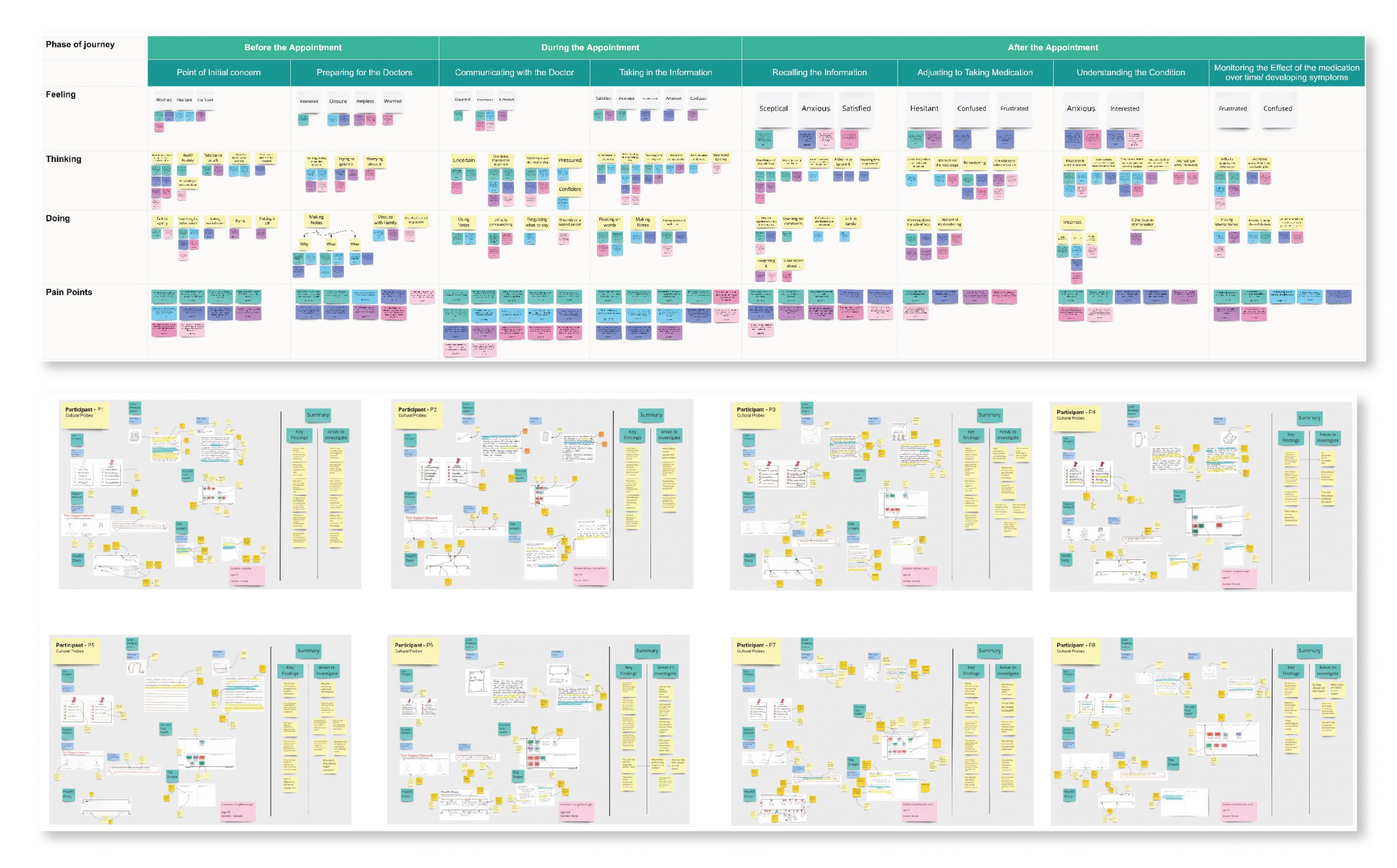
Key Insights
Data was collated and analysed using Affinity Mapping, Participant Boards, Thematic Analysis and Journey Mapping, allowing for the following insights to be identified.
- Despite a desire for independence, families are integral in user’s understanding of their health, acting as the catalyst to seeking healthcare and facilitating conversation in appointments, due to diminished confidence and retrospective memory.
- Their ability to retain information from an appointment is impacted by their diminishing retrospective memory. However, attempts at combating this through note-taking only add compromises, as attention is directed away from the Doctor.
- Over-the-phone consultations remove the ability for patients to visually show where pain or discomfort is occurring, forcing them to rely on descriptive methods; this is ineffective due to their difficultly verbally articulating their symptoms.
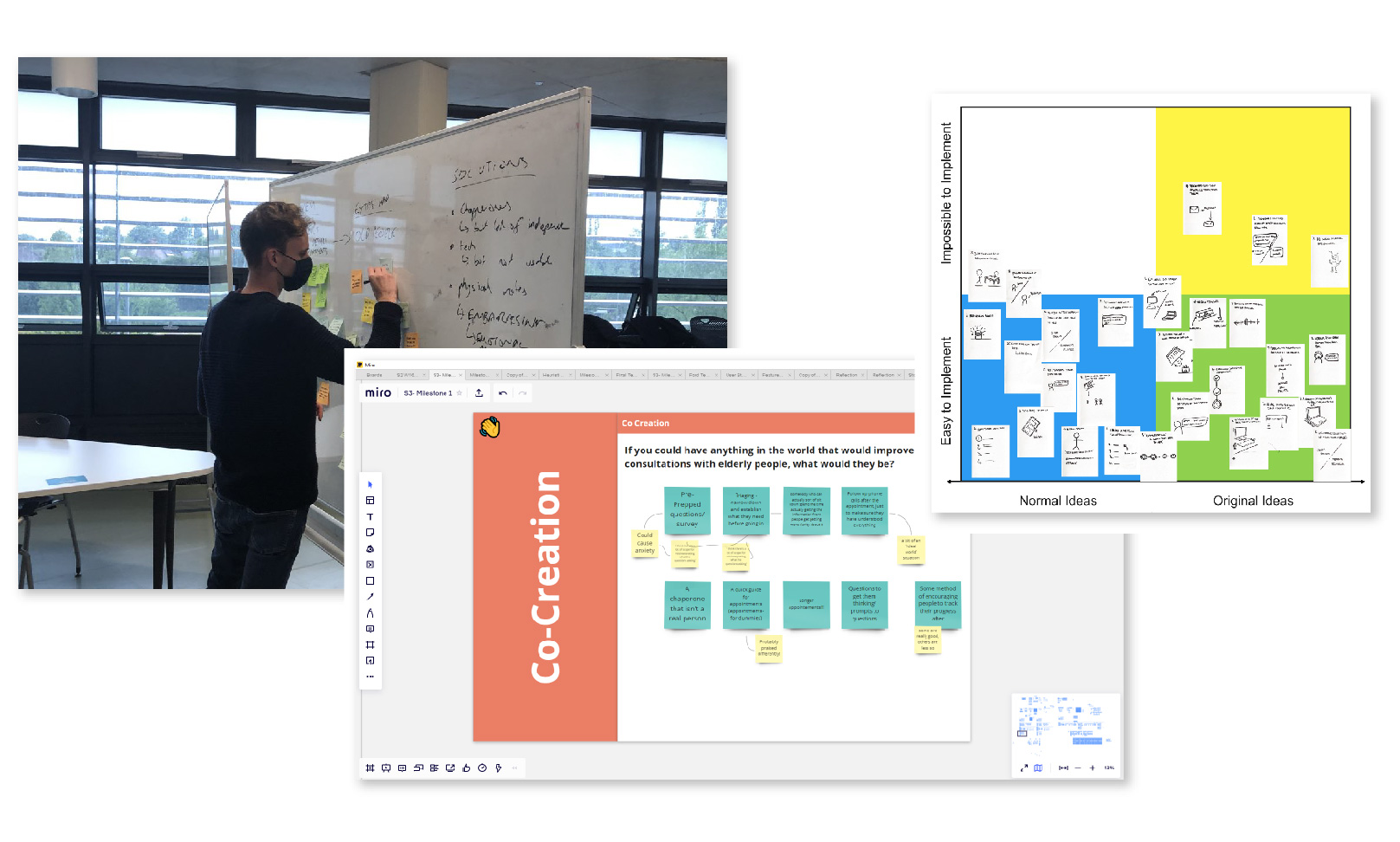
Concept Generation
To kick-start creating a solution, How Might We's were used to transform the insights into opportunities and create divergent solutions to the problems. Concept generation involved co-creation with both stakeholders and end-users, to ensure a holistic solution was generated that was meaningful and feasible for both parties.
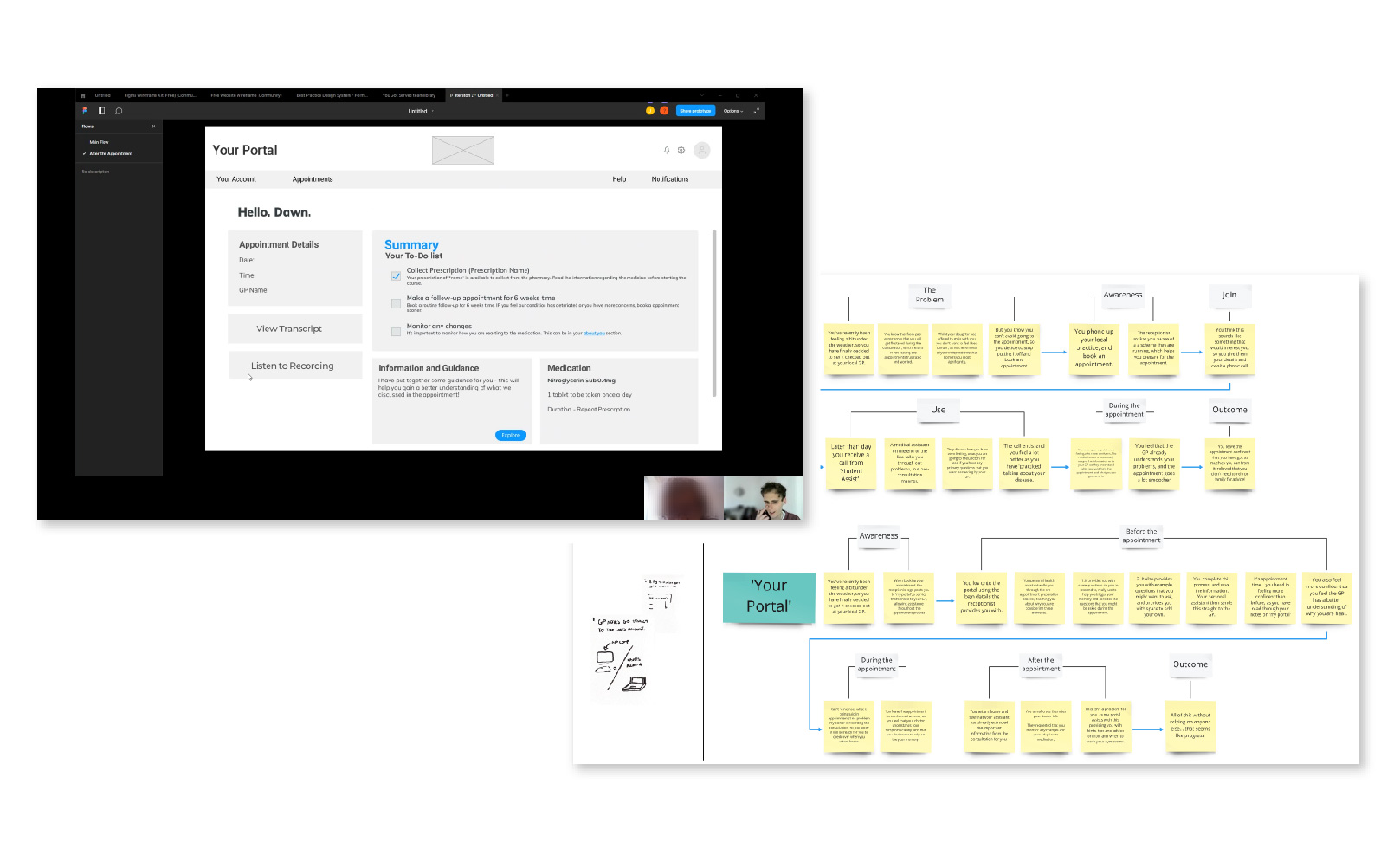
The Iterative Approach
Development was driven by consistent testing with both end-users and stakeholders. Progressing from Experience Prototyping and Storyboarding, which was used to co-develop the solution in order to rapidly identify and solve potential barriers, through to lo-fi interactive prototypes, which were used to develop the solution to meet the user's expectations and mental models. The results of the five testing phases were repeatedly evaluated against the user requirements and design principles, to ensure a meaningful solution was being created.
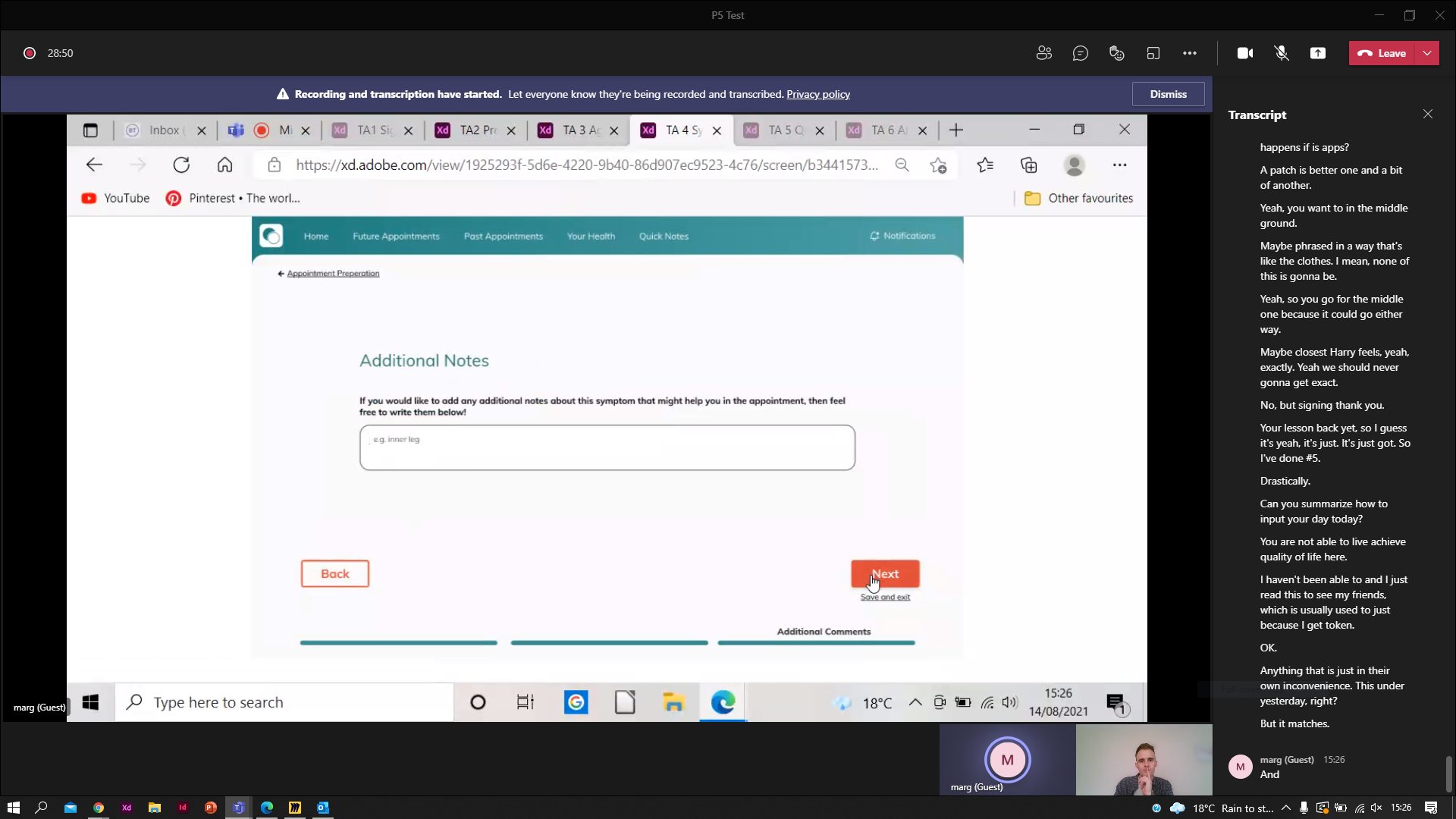
Usability Testing
With increasing age comes almost inevitable physical and cognitive changes, which can impact memory, understanding, learnability and decision-making. When these are combined with unfamiliar interactions and incorrect mental models, the result can be an unusable experience that provides a barrier to engagement. Therefore, Usability and Accessibility were perceived as areas of importance for this project.
Heuristic Evaluations and Accessibility Analysis' were conducted prior to final usability testing. This final phase involved conducting Thinking-Aloud activities with end-users, followed by SUS testing, to uncover true usability issues.
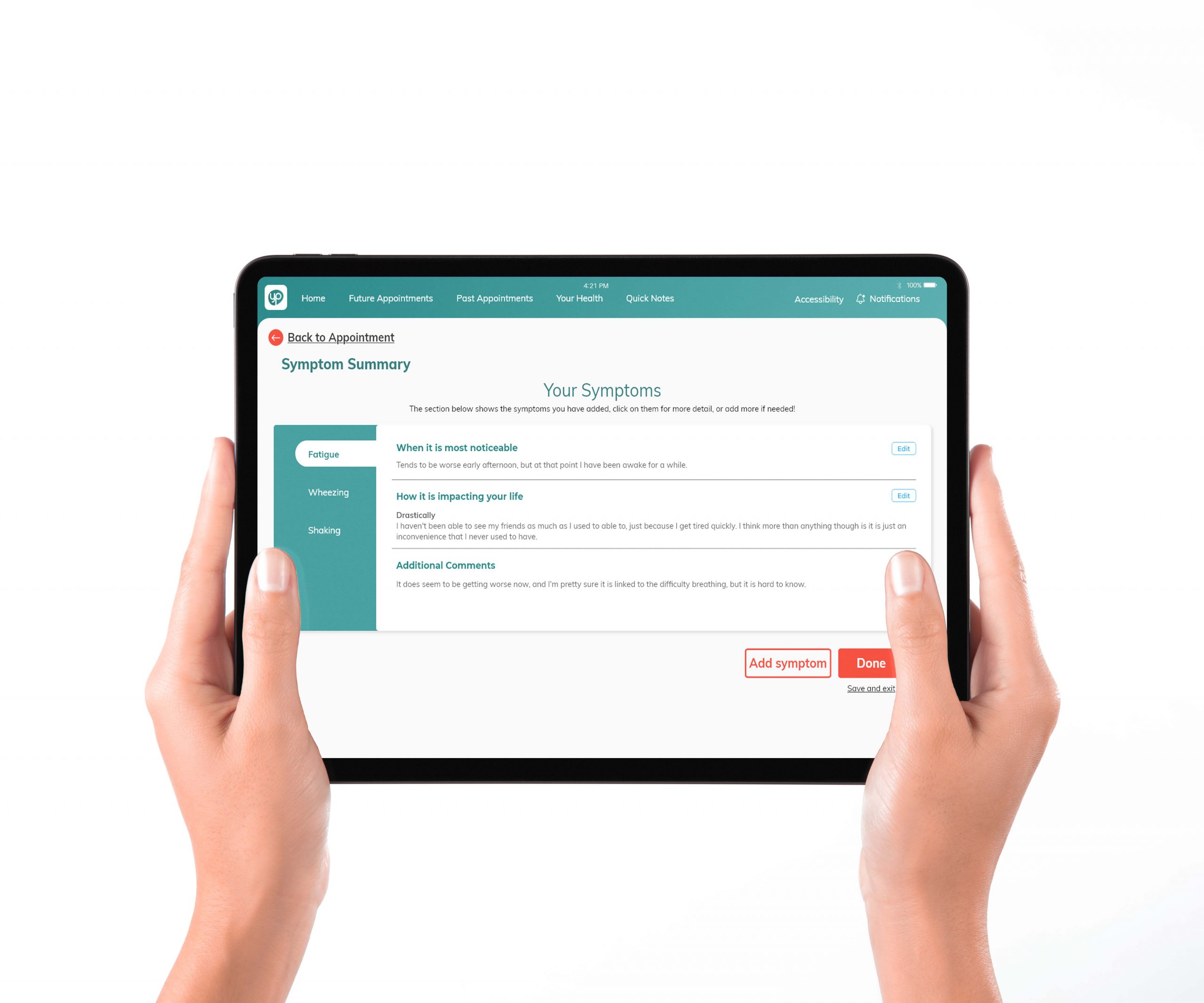
The Solution
The solution comes in the form of Your Portal. Your Portal empowers users by extending the appointment outside of the 10-minute slot; the use of AI tailored questions and medical frameworks enables patients to effectively prepare before the appointment, removing the pressure caused by on-the-spot thinking and poor memory. The subsequent thoughts are available as notes during the appointment, acting as a memoir aid and facilitating symptom articulation. With this guided support continuing after the appointment, enabling users to review their appointment, access suggested resources, and take the steps necessary to achieve effective self-management, independently.
The final prototype can be seen by following this link: https://xd.adobe.com/view/598600e6-bea0-46bb-ad32-bbee4f9d63fe-0cd5/?fullscreen&hints=on
James Hoare
I am a thorough designer, who develops experiences through a process that is driven by empathy and evidence.
Having studied BA (Hons) Product Design, I subsequently fulfilled the role of a Creative Designer, utilising my creative abilities and manufacturing knowledge. However, I became aware that my interests centred around the users; understanding how humans interact with experiences and the problems that define them. My desire for improving my knowledge of this area paired with my willingness to learn resulted in my enrolling on the MA User Experience course.
My undergraduate degree introduced me to empathy-driven research, and this Masters has enabled me to refine these skills; professionally and effectively conducting User Research and Evaluations, applying the correct approaches and frameworks to elicit meaningful and powerful insights, and effectively unearthing the crux of the problems.
Major project
Improving the Ageing Generation's Health and Quality of Treatment, through Improved Self-Management.
Awards
Ford Fund Smart Mobility Challenge 2021 - I was a member of one of the winning teams of the Smart Mobility Challenge 2021, organised by the Ford Motor Company.
Shortlisted by Gengame - 'My Home' was my response to the brief that explored how smart data could be used to provide a meaningful solution that simultaneously reduces energy usage within the home.